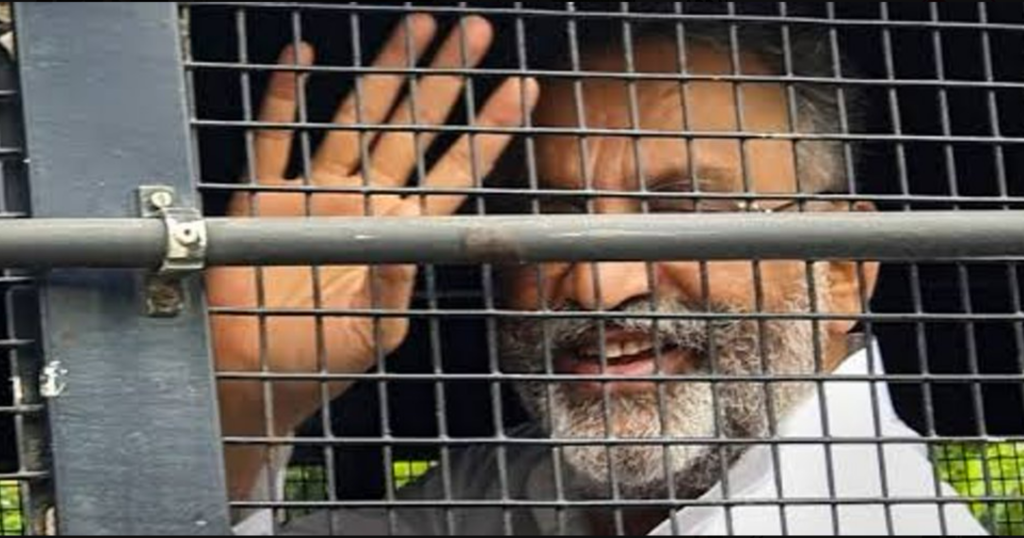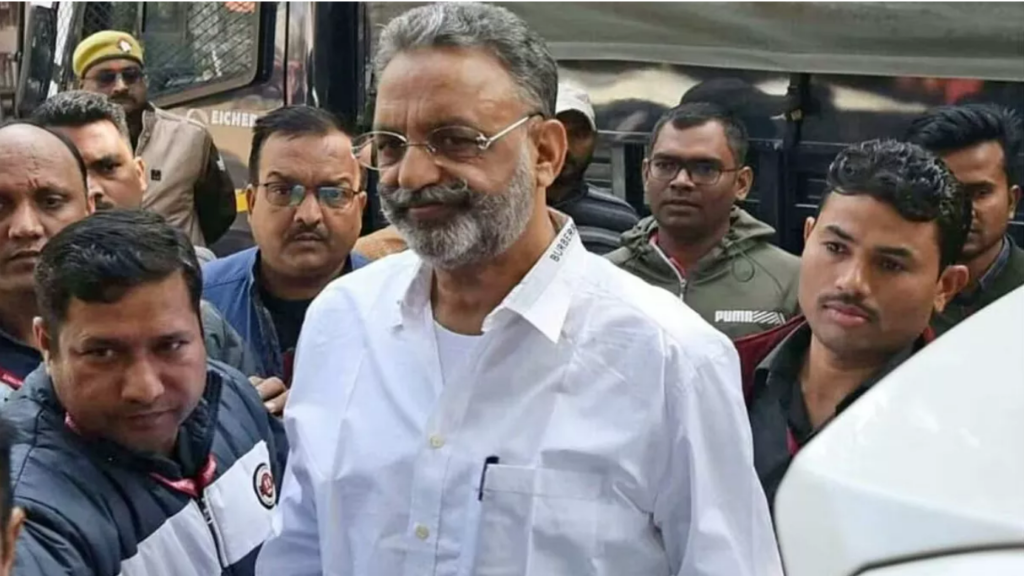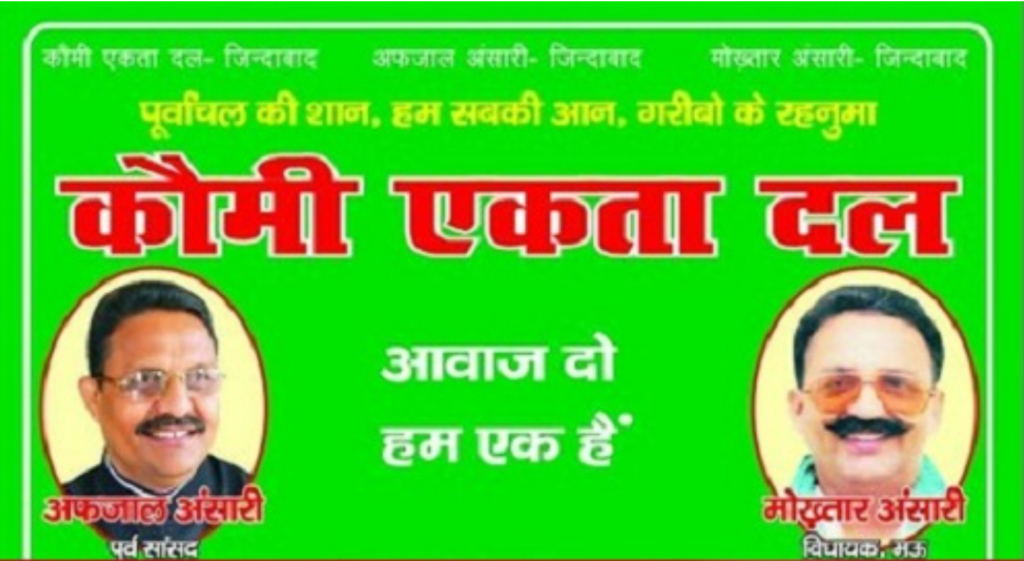Mukhtar Ansari’s Janma Kundali From Gangster to Grave – Everything You Should Know About Mukhtar Ansari‘s Life Story, Dark Secrets and Death Controversy in a single Article.
Mukhtar Ansari, a controversial figure in Indian politics, was born on June 30, 1963. His lineage carries historical significance; his paternal grandfather, Mukhtar Ahmed Ansari, was an early president of the Indian National Congress, while his maternal grandfather, Mohammad Usman, was a brigadier in the Indian Army. However, Mukhtar Ansari’s life took a different trajectory, marked by alleged criminal activities and a tumultuous political career

Early Life and Criminal Allegations
“Mukhtar Ansari’s Janma Kundali From Gangster to Grave” starts with his early life. His early life was marked by his association with the Makhanu Singh gang in the 1980s, which operated in districts like Mau, Ghazipur, Varanasi, and Jaunpur. The gang’s clashes with rival groups over lucrative government contracts and control of illegal businesses led to numerous violent incidents. Ansari quickly gained notoriety for his alleged involvement in organized crime, including extortion, kidnapping, and murder.
Entry into Politics
Despite his criminal background, Ansari ventured into politics through student union activities at Government PG College, Ghazipur. His rise in politics was simultaneous with his ascension in the criminal underworld. In 1996, he became an MLA, representing the Mau constituency. This marked the beginning of his controversial political career, where his criminal connections often overshadowed his legislative duties.
Political Career and Controversies
Mukhtar’s political career was characterized by a series of controversies and legal battles. Despite facing multiple criminal charges, including murder, extortion, and illegal possession of arms, Mukhtar’s political clout continued to grow. He joined the Bahujan Samaj Party (BSP) in 2007, portraying himself as a champion of the marginalized sections of society. However, his association with criminal elements led to his expulsion from the party when his criminal activities came to light.

Formation of Quami Ekta Dal (QED)
Undeterred by setbacks, Ansari formed the Quami Ekta Dal (QED) in 2010 to maintain his political relevance. The party aimed to consolidate the support of marginalized communities, particularly Muslims, in Uttar Pradesh. Ansari contested several elections under the QED banner, including unsuccessful bids against prominent political figures like Narendra Modi in Varanasi.

Legal Troubles and Convictions
Ansari’s legal troubles continued to mount over the years, leading to several convictions. In March 2024, he was sentenced to life imprisonment in connection with a 1990 arms license forgery case. This marked his eighth conviction in just two years, highlighting the extent of his criminal involvement and the failures of the justice system to curb his activities.
Death and Controversy
Ansari’s life came to a sudden end on March 28, 2024, when he died from a heart attack in Banda prison, Uttar Pradesh. His death sparked controversy, with his family alleging foul play and claiming that he was being poisoned in prison. This led to investigations into the circumstances surrounding his demise, raising questions about the state of prison conditions and the treatment of inmates in India.
Mayawati demands for high level investigations in Mukhtar Ansari’s Death
मुख़्तार अंसारी की जेल में हुई मौत को लेकर उनके परिवार द्वारा जो लगातार आशंकायें व गंभीर आरोप लगाए गए हैं उनकी उच्च-स्तरीय जाँच जरूरी, ताकि उनकी मौत के सही तथ्य सामने आ सकें। ऐसे में उनके परिवार का दुःखी होना स्वाभाविक। कुदरत उन्हें इस दुःख को सहन करने की शक्ति दे।
— Mayawati (@Mayawati) March 29, 2024
Akhilesh Yadav says UP is going through the worst phase of ‘government anarchy’
हर हाल में और हर स्थान पर किसी के जीवन की रक्षा करना सरकार का सबसे पहला दायित्व और कर्तव्य होता है। सरकारों पर निम्नलिखित हालातों में से किसी भी हालात में, किसी बंधक या क़ैदी की मृत्यु होना, न्यायिक प्रक्रिया से लोगों का विश्वास उठा देगा:
— Akhilesh Yadav (@yadavakhilesh) March 29, 2024
– थाने में बंद रहने के दौरान
– जेल के…
Legacy and Conclusion
Mukhtar Ansari’s life and career epitomize the complex nexus between crime and politics in India. His ability to navigate both worlds underscores the challenges of governance and the prevalence of corruption within the country’s political system. Despite his criminal background, Mukhtar retained a significant support base, highlighting the complexities of public perception and the enduring influence of identity politics in Indian society. His legacy prompts reflection on the intertwining of underworld elements and elected representatives, underscoring the need for comprehensive judicial reforms and stringent measures to combat organized crime and corruption in India.
